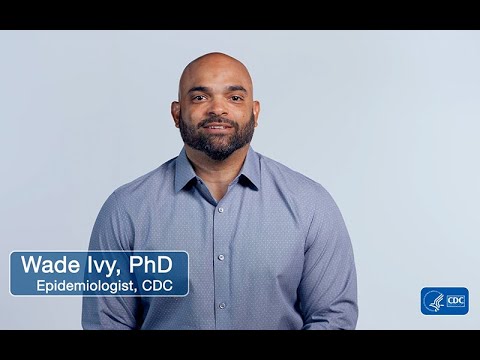Exploring the World of Epidemiology: Job Description and Salary

Epidemiologist Job Description Template
Epidemiologist Job Description An epidemiologist is a public health professional who studies patterns and causes of diseases in populations. They collect and analyze data to understand how diseases spread, develop prevention strategies, and help control outbreaks. Epidemiologists play a crucial role in identifying and addressing health issues that affect communities. Education and Skills To become an epidemiologist, a master’s degree in public health or a related field is typically required. Strong analytical and research skills are essential for this role, as epidemiologists need to interpret complex data and draw conclusions. They should also have a solid understanding of statistics and data analysis methods. Excellent communication skills are important as well, as epidemiologists often present their findings to healthcare professionals and policymakers. Responsibilities Epidemiologists have a variety of responsibilities, including: 1. Collecting and analyzing health data: Epidemiologists gather data from various sources, such as medical records, surveys, and laboratory reports. They use statistical techniques to analyze the data and identify trends or patterns. 2. Investigating disease outbreaks: When an outbreak occurs, epidemiologists investigate the source and spread of the disease. They conduct interviews, collect samples, and analyze data to determine the cause and recommend preventive measures. 3. Developing and implementing prevention strategies: Based on their findings, epidemiologists develop strategies to prevent the spread of diseases. This may include recommending vaccinations, promoting healthy behaviors, or implementing quarantine measures. 4. Collaborating with other professionals: Epidemiologists often work closely with healthcare professionals, policymakers, and researchers to monitor public health trends and develop effective interventions. Epidemiologists play a critical role in protecting public health by understanding and controlling the spread of diseases. Their work has a direct impact on preventing and managing outbreaks, ensuring the well-being of communities.Epidemiologist Responsibilities
Epidemiologist Requirements
How Much Does A Epidemiologist Make?
Epidemiologist Salary
| Job Title | Median Annual Salary | Lowest 10% Earned | Highest 10% Earned |
|---|---|---|---|
| Epidemiologist | $70,990 | $44,000 | $119,290 |
An epidemiologist is a public health professional who studies diseases and their patterns to better understand their causes, prevention, and control. They collect and analyze data, conduct research, and communicate their findings to help prevent and control the spread of diseases.
The median annual salary for epidemiologists is $70,990. The lowest 10% earned around $44,000, while the highest 10% earned around $119,290. Salaries may vary depending on factors such as experience, education, location, and employer.
As epidemiologists play a crucial role in public health, their work is vital for disease surveillance, outbreak investigation, and policy development. They contribute to the overall well-being of communities by identifying and addressing health risks and developing strategies for disease prevention and control.
Epidemiologist Salaries by Country
Top Paying Countries for Epidemiologist
| Country | Average Salary (USD) |
|---|---|
| United States | 95,000 |
| Switzerland | 85,000 |
| Australia | 75,000 |
| Canada | 70,000 |
| United Kingdom | 65,000 |
An epidemiologist is a public health professional who studies the patterns and causes of diseases in populations. Epidemiologists play a crucial role in analyzing and preventing the spread of diseases. The salaries of epidemiologists vary across countries. According to recent data, the top paying countries for epidemiologists are the United States, Switzerland, Australia, Canada, and the United Kingdom. In the United States, epidemiologists earn an average salary of $95,000 per year. Switzerland follows closely with an average salary of $85,000, while Australia offers an average salary of $75,000. Canada and the United Kingdom round out the top five with average salaries of $70,000 and $65,000, respectively. These high salaries reflect the importance placed on public health and disease prevention in these countries.
A video on the topic Epidemiologist
Video Source : Centers for Disease Control and Prevention (CDC)Interview Questions for Epidemiologist
1. What is epidemiology?
Epidemiology is the study of the distribution and determinants of health-related events, conditions, and outcomes in populations. It involves analyzing patterns, causes, and effects of diseases and other health-related issues.
2. What are the main goals of epidemiology?
The main goals of epidemiology are to identify the etiology (cause) of diseases, determine the burden of disease in populations, develop and evaluate preventive measures, and provide evidence for public health policy and interventions.
3. What are the different types of epidemiological studies?
There are several types of epidemiological studies, including observational studies (such as cohort and case-control studies) and experimental studies (such as randomized controlled trials). Each type of study has its own strengths and limitations.
4. What is the difference between incidence and prevalence?
Incidence refers to the number of new cases of a disease that occur in a population over a specific period of time. Prevalence, on the other hand, refers to the total number of cases of a disease (both new and existing) in a population at a given point in time.
5. How do you assess the association between an exposure and an outcome in epidemiology?
In epidemiology, the association between an exposure and an outcome is assessed through measures of association, such as relative risk, odds ratio, or hazard ratio. These measures compare the risk or probability of the outcome occurring in exposed individuals versus unexposed individuals.
6. What is the role of epidemiologists in disease outbreak investigations?
Epidemiologists play a crucial role in disease outbreak investigations. They collect and analyze data to identify the source of the outbreak, determine the mode of transmission, and develop strategies for controlling and preventing further spread of the disease.
7. How does epidemiology contribute to public health policy?
Epidemiology provides scientific evidence that is used to inform public health policy decisions. Through studies and surveillance systems, epidemiologists gather data on disease patterns, risk factors, and outcomes, which helps guide the development of effective prevention and control strategies.
8. What are some challenges faced by epidemiologists?
Some challenges faced by epidemiologists include dealing with limited data availability, conducting research on rare diseases or events, accounting for confounding factors, and effectively communicating complex findings to the public and policymakers.
9. How has epidemiology contributed to our understanding of non-communicable diseases?
Epidemiology has greatly contributed to our understanding of non-communicable diseases, such as heart disease, cancer, and diabetes. It has helped identify risk factors, quantify their impact on disease development, and inform the development of prevention and treatment strategies.
10. What are some future directions for epidemiology?
Some future directions for epidemiology include embracing new technologies and data sources, such as genomics and digital health records, integrating interdisciplinary approaches to address complex health issues, and enhancing global collaborations to tackle emerging infectious diseases and global health disparities.






